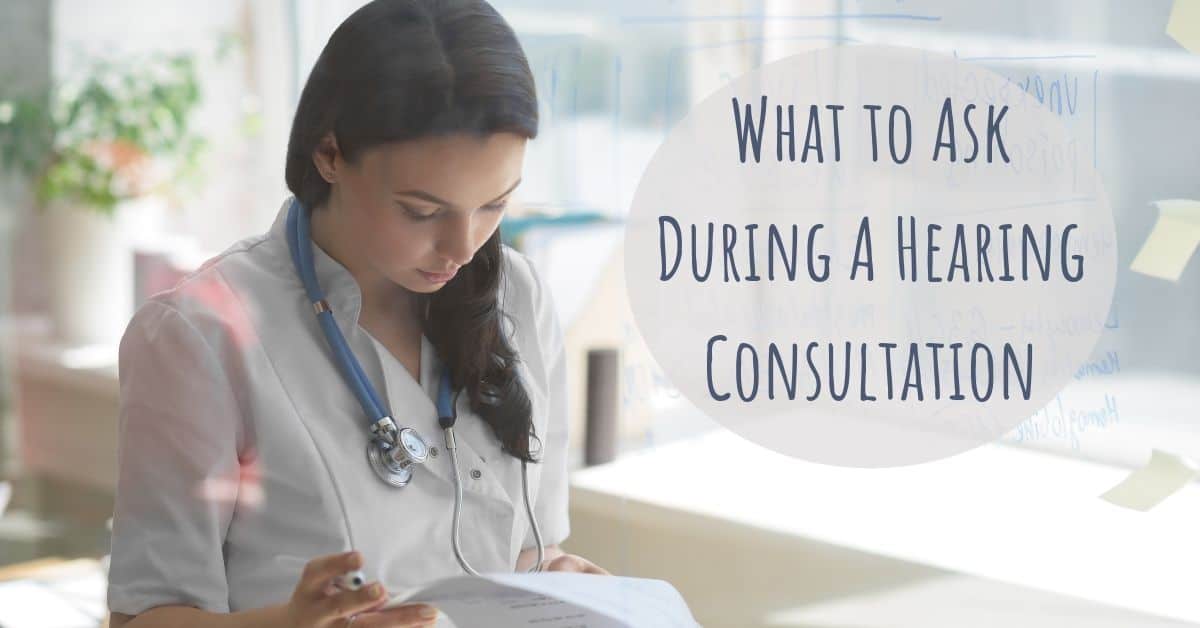Good for you, you are getting a hearing evaluation at Advanced Hearing Solutions! You have placed yourself in a good statistical place. Studies show many Americans wait five to seven years to get treatment for hearing loss. Think of what you would miss in that time! And, there are so many things that you put yourself at risk for if you don’t treat your hearing loss. Untreated hearing loss can cause hypertension, higher risk of stroke, increased risk of falling, longer hospital stays if you do get injured and other issues such as depression, dementia and Alzheimer’s. Here’s what you can expect at your first consultation and here’s some suggestions on what to ask so you can have all the information you might need.
The Hearing Evaluation
The hearing evaluation will have a couple of parts. We’ll ask about your health history and your family history because this information plays a part in your diagnosis. There will be a physical exam of your inner and outer ears. Then we will conduct a series of tests to determine your level of hearing and speech comprehension. Each ear is tested separately and you get results for both ears. We will explain the results in language you can understand and we will make sure you understand the results.
What Type of Hearing Loss Do I Have?
And, will the hearing loss I have get worse? Understanding which type of loss, you have will help you understand the treatment you will be advised to get. It will also help you understand how treatment will protect your remaining hearing. There are three types of hearing loss.
Sensorineural is the type of hearing loss occurs when there is damage to the inner ear or the nerve path to the brain from the inner ear. This kind of hearing loss is permanent but can be treated very effectively with hearing devices.
Conductive hearing loss happens when sound travels poorly through the outer ear canal to the eardrum. This could be due to blockage from ear wax, an ear infection, allergies or even a benign tumor. Many times, hearing is restored when the blockage is removed. Mixed hearing loss is a combination of the two.
Is the Loss in Both Ears?
Your left and right ear may actually hear differently from one another. That’s why each ear is tested and graphed separately. While you may think if you have loss in one ear you should only wear one hearing aid, that’s not necessarily true. It’s easier for your brain to process amplification if you’re wearing two hearing aids. Most individuals, about 90%, need hearing aids in both ears.
Which Hearing Aid Model is Best for Me?
There are dozens and dozens of different models of hearing aids. Some go inside the canal; some go inside the inner ear and some sit behind or over the ear. Some need batteries and some are digital.
Advanced Hearing Solutions staff prides itself on mixing compassion with reality. We can go through the technology with you and then discuss your expectations and what you expect so we can find the hearing aid model that is exactly right for what you are expecting.
Part of your initial consultation will include questions about your lifestyle so we can use that information to help you pick a model that is right for you.
It would be helpful if you kept track of where and what you are doing when you seem to be having the most hearing difficulties. There are a number of assistive devices that could go with your hearing aid to help you out in some situations and we can also assist you with custom ear protection if that is also something you need.
Specifics of Your Hearing Aids
Depending on the model you get, hearing aids do eventually wear out. You may want newer ones if the technology changes. There are different warranties for different models and we can go through that with you. We offer our patients a free hearing aid trial and we also offer long-term, no-interest, payment plans. Your follow-up visits are free. In addition, many of the repairs your hearing aids may need we can do on site.
Advanced Hearing Solutions
You probably have more questions for the team at Advanced Hearing Solutions. Write them down and we’ll take all the time you need. Getting you on the correct path to good hearing is important to us. Call today and set up an appointment!

